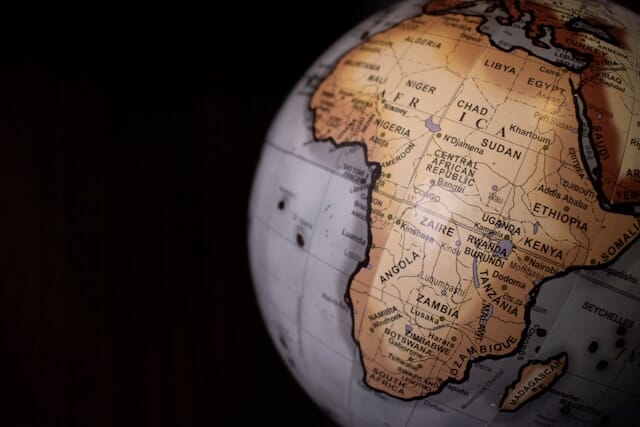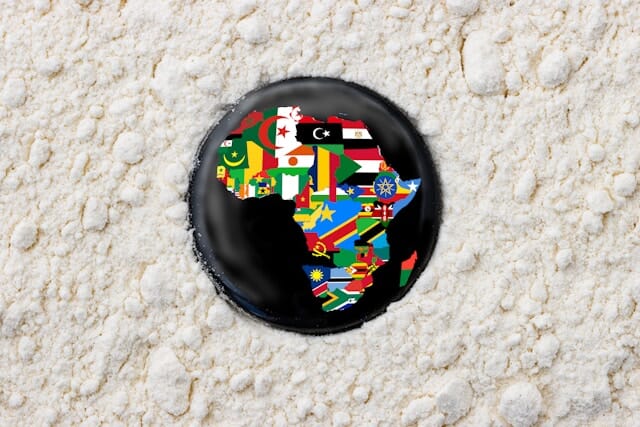A name is more than just a word on a map. It is a declaration of identity, a nod to history, and a symbol of sovereignty. For the continent of Africa, which endured centuries of colonial rule, the act of naming and renaming has been a powerful part of the post independence journey. While many nations swiftly cast off their colonial labels, Rhodesia became Zimbabwe, Gold Coast became Ghana, Dahomey became Benin, a significant number retained the names given to them by European powers
Why would a nation keep a name from its colonial past? The reasons are complex, woven from threads of history, practicality, and national unity. Let's explore five African countries that still use their colonial era names and reveal the fascinating stories behind them.
1. Nigeria
Colonial Power: Great Britain
Colonial Name Origin: Named by British journalist Flora Shaw in 1897, "Nigeria" derives from the Niger River, meaning "river of shrimp" in Portuguese ("Rio dos Camaroes").
Nigeria retained its name post-independence in 1960 due to its widespread recognition and lack of a unifying indigenous alternative among its diverse ethnic groups.
While entirely a colonial construction, the name "Nigeria" provided a neutral, geographical umbrella under which hundreds of diverse ethnic groups (Yoruba, Igbo, Hausa-Fulani, and more) could unite as one nation. Changing it could open complex debates about which indigenous name to privilege, making the seemingly neutral "Land of the Niger" a pragmatic choice for national cohesion.
2. Ghana
Colonial Power: Great Britain
Colonial Name Origin: Known as the Gold Coast under British rule, the name "Ghana" was adopted in 1957, inspired by the ancient West African Ghana Empire, though not geographically linked.
Chosen to evoke a proud pre-colonial heritage, it reflects a deliberate shift from the colonial "Gold Coast" while maintaining historical resonance. The name Ghana fosters national pride, connecting modern Ghanaians to a powerful African legacy.
3. Sierra Leone
Colonial Power:Great Britain
Colonial Name Origin: Named in 1462 by Portuguese explorer Pedro de Sintra, "Sierra Leone" translates to "Lion Mountains," inspired by the coastal hills.
Post-independence in 1961, the name was retained for its poetic imagery and historical familiarity, despite no direct indigenous connection. The name remains a unique identifier, though some advocate for names reflecting local languages like Krio or Mende.
4. Cameroon
Colonial Power: Great Britain
Colonial Name Origin: Derived from "Rio dos Camaroes" (River of Shrimp), named by Portuguese explorers in the 15th century for the Wouri River's shrimp abundance.
After independence in 1960, Cameroon kept its name due to its entrenched use across colonial regimes (Portuguese, German, British, and French). The name is a neutral identifier across Cameroon's linguistic diversity, though some push for names tied to local ethnic groups.
5. Côte d'Ivoire
Colonial Power: France
Colonial Name Origin: Named "Ivory Coast" by French colonizers for the ivory trade, the country retained its French name, Côte d'Ivoire, post-independence in 1960.
The government insisted on the French name to assert cultural authenticity, rejecting translations like "Ivory Coast" in international contexts. The name reflects Francophone identity and national pride, though it ties to colonial trade history.
Why Retain Colonial Names?
These countries retain colonial names for practical reasons: global recognition, administrative continuity, and lack of consensus on alternatives. However, the choice sparks ongoing debates about identity, heritage, and decolonization. While some see these names as remnants of oppression, others view them as integral to modern national identity, shaped by history and geography.
The Ongoing Debate
The retention of these names is not without controversy. For many, these names are permanent scars, reminders of exploitation and a stolen history. Activist movements and intellectuals within these countries often call for change, arguing that a truly independent identity requires a name of their own choosing.
For others, the names have been reclaimed. They have been imbued with new meaning through decades of post-independence struggle, achievement, and national pride. The cost and administrative nightmare of a name change (on maps, currency, international agreements) are also significant practical deterrents.
Why Do These Names Endure?
Colonial names persist due to historical familiarity, lack of consensus on indigenous alternatives, and their role in fostering national unity among diverse populations. While some see these names as remnants of oppression, others view them as part of a complex national identity. The debate continues as African nations balance heritage with modernity.
Understanding the colonial names still used by Nigeria, Ghana, Sierra Leone, Cameroon, and Côte d'Ivoire offers insight into their historical and cultural landscapes. These names, rooted in colonial encounters, reflect both a complex past and a resilient present. Share your thoughts on renaming these nations in the comments below!


 Top 10 African Countries with the Highest IMF Debt in June 2025
Top 10 African Countries with the Highest IMF Debt in June 2025